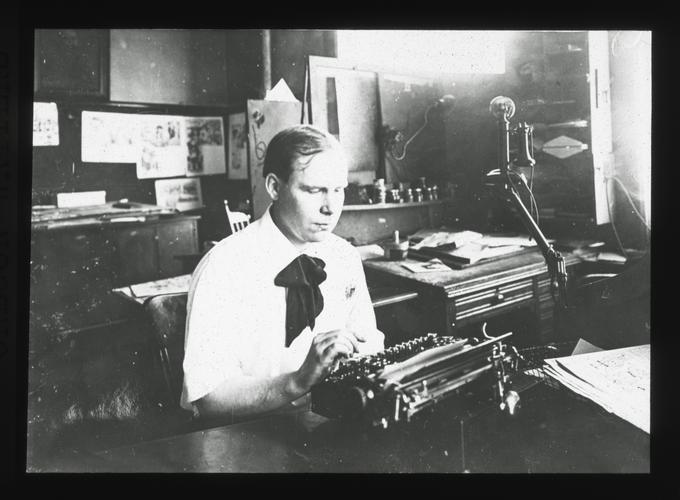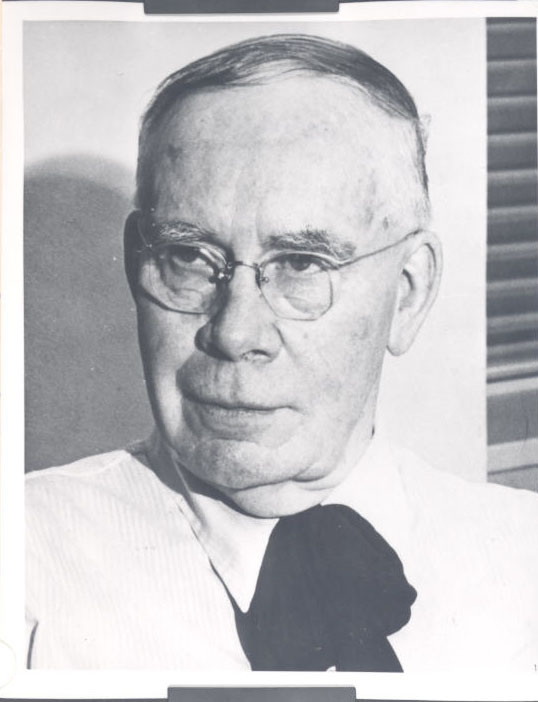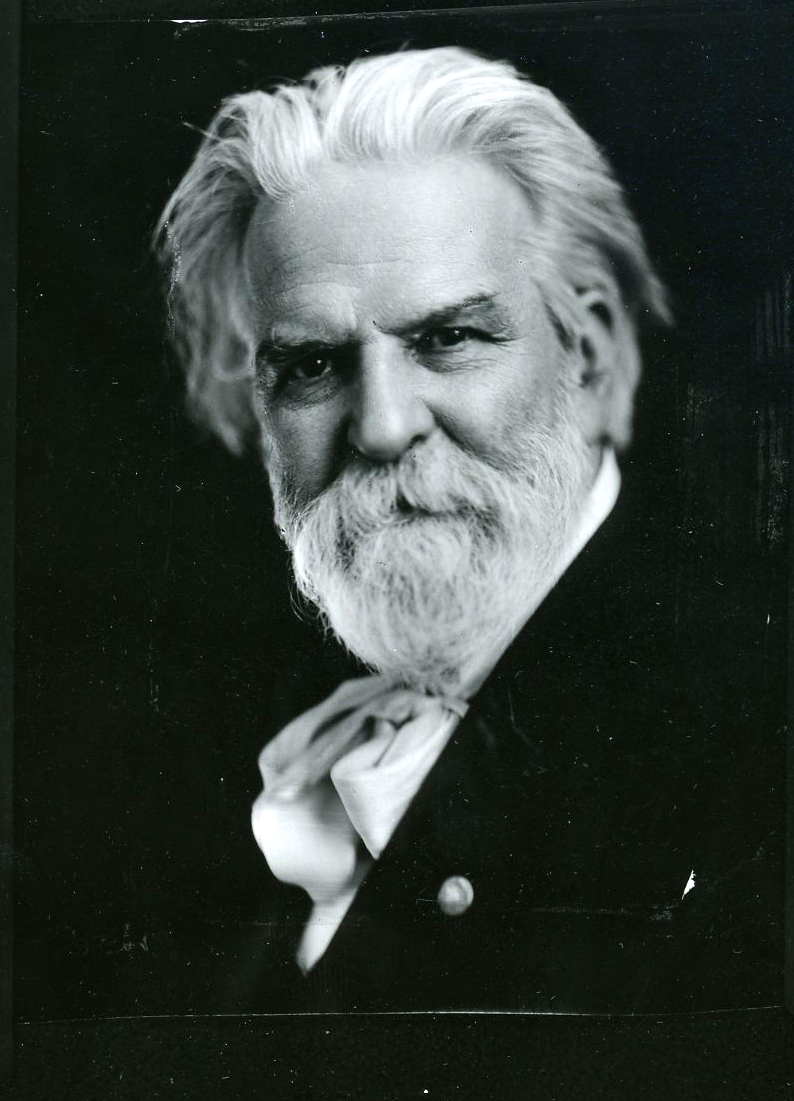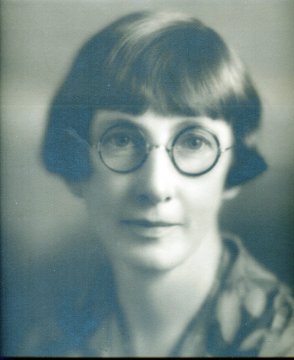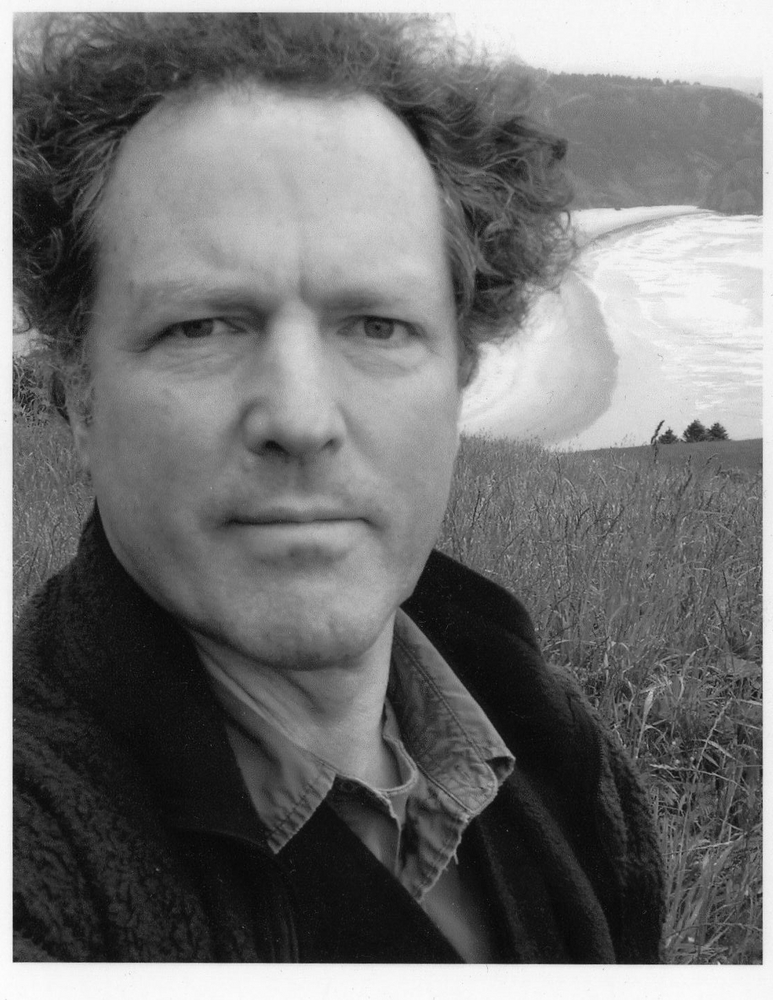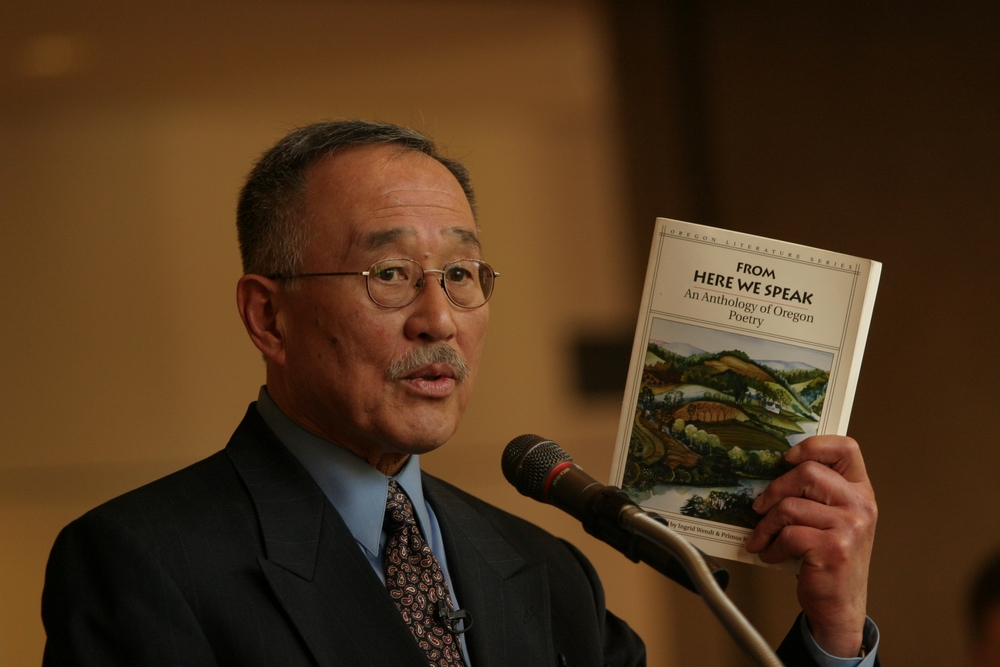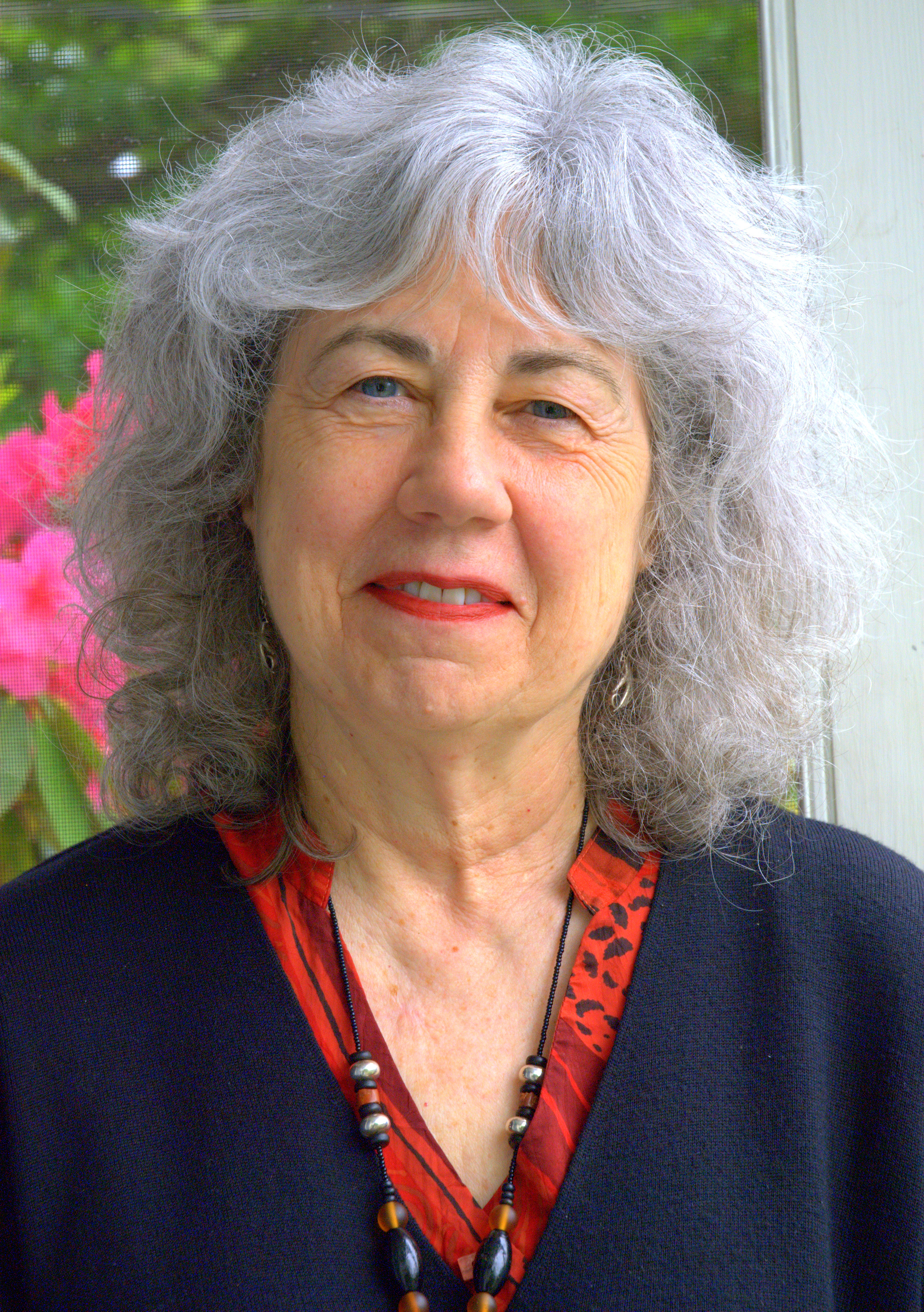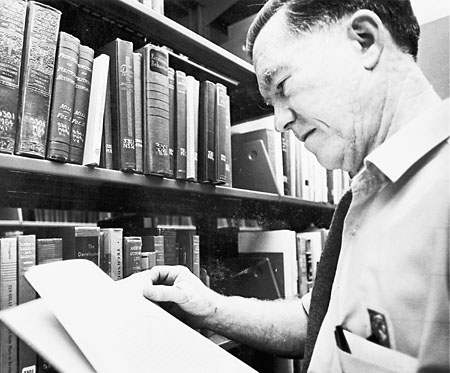Ben Hur Lampman, one of Oregon’s most popular writers in the first half of the twentieth century, was a longtime columnist for the Oregonian. His prolific writing, however, ranged beyond daily journalism into magazine fiction, poetry, a novel, and several nonfiction books.
Oregonian editor Edgar B. Piper called Lampman the most versatile writer he knew, a "reporter, commentator, storyteller, naturalist, historian and poet." Lampman's “ear for the vibrant, homely phrase," Edward Weeks, editor of the Atlantic Monthly, wrote, "makes him the best teller of the colloquial tale since Ring Lardner.”
Born in Barron, Wisconsin, Lampman grew up in tiny Neche, North Dakota, where his father edited the local newspaper. He began his journalism career at age nineteen, when he established and edited the Arena, a county newspaper in Michigan City, North Dakota. He married Lena McEwen Sheldon, who had moved from New York to North Dakota to teach school. Lampman’s first book, a compilation of poems and newspaper editorials, carries this dedication: “To Lena, who is very patient with me, but holds that the kitchen is not the place to clean fish.”
In 1912, Lampman moved to Gold Hill, where he edited the weekly Gold Hill News. He also spent as much time as he could fishing the Rogue River. In 1916, he moved to Portland to work for the Oregonian, where he was a reporter and later an editorial writer and columnist. He also contributed essays and stories to the Saturday Evening Post, Sunset, and other magazines. In 1943, Lampman won an O. Henry Award for his short story “Blinker Was a Good Dog,” published in the Atlantic. His novel, Here Comes Somebody, was published in 1935.
Lampman was a master of the short verbal sketch, a mini-essay inspired by ordinary turns of everyday life. He could find insight—leavened by wry humor and playful language—in the most mundane happenstance. One column ruminated on how urban bystanders act when a pedestrian’s hat blows off in a gust of wind. Others dealt with the dilemma of the “returned vacationist,” Armistice Day, a bootlegger’s dead dog, a garden spider, pipe smoking, wild ducks. Many reflected on Oregon’s natural landscape. “If you should see a crow against sunrise, as you read,” he wrote in the preface to one collection, “or hear the drums of ocean, or be moved to a mood of kindliness toward all creatures great and small, I am repaid and well content.”
A reader’s question about where to bury a dog provoked a widely circulated column with this punch line: “The one best place to bury a good dog is in the heart of its master.”
Lampman was named Oregon’s poet laureate in 1951. He held that post until his death in 1954 at age sixty-seven. He is buried in Lincoln Memorial Cemetery in Portland.
-
![]()
Ben Hur Lampman, c.1931.
Courtesy Oregon State University Libraries -
![Ben Hur Lampman]()
Ben Hur Lampman.
Ben Hur Lampman Courtesy Oreg. Hist. Soc. Research Lib., neg. no.008900
Related Entries
-
![Edwin Markham (1852-1940)]()
Edwin Markham (1852-1940)
Throughout most of his life, Edwin Markham was known as the Dean of Ame…
-
![Elizabeth Woody (1959-)]()
Elizabeth Woody (1959-)
Poet and artist Elizabeth Woody was named Oregon Poet Laureate in 2016,…
-
![Ethel Romig Fuller (1883-1965)]()
Ethel Romig Fuller (1883-1965)
Ethel Romig Fuller was Oregon’s first female poet laureate, from 1957 t…
-
Kim Stafford (1949 - )
Kim Stafford, Oregon’s ninth Poet Laureate, is a poet, essayist, memoir…
-
Lawson Fusao Inada (1938-)
Poet, writer, and educator, Lawson Fusao Inada is an emeritus professor…
-
![Paulann Petersen (1942-)]()
Paulann Petersen (1942-)
Paulann Petersen, Oregon’s sixth Poet Laureate, is an award-winning poe…
-
![Peter H. Sears (1937–2017)]()
Peter H. Sears (1937–2017)
Peter H. Sears, a poet and educator, served as Oregon Poet Laureate fro…
-
![William Stafford (1914-1993)]()
William Stafford (1914-1993)
William Stafford, one of America’s most widely read poets, was born in …
Map This on the Oregon History WayFinder
The Oregon History Wayfinder is an interactive map that identifies significant places, people, and events in Oregon history.
Further Reading
Lampman, Ben Hur. At the End of the Car Line. Portland, Ore.: Binfords and Mort, 1942.
Lampman, Ben Hur. How Could I Be Forgetting? Portland, Ore.: Metropolitan Press, 1933.
Lampman, Ben Hur. The Wild Swan, and Other Sketches. New York: Thomas Y. Crowell Co., 1947.

